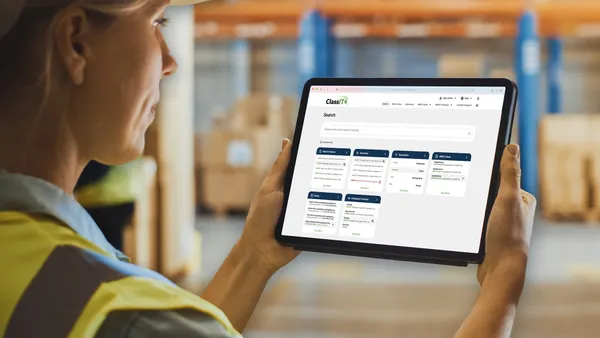Editor's Note: The following is a guest post written by freelancer Anna Smith.
Being a part of the freight broker industry presents many opportunities, but it isn’t always easy understanding how to begin if you’re new to the business or where to get accurate information once you’re up and running. The vastness of the Internet offers endless potential resources and guidance for freight brokers in all stages, which can be overwhelming at best. Navigating all the available information online and deciphering what is relevant and what isn’t takes time, so having a quick guide to top online sources of information is incredibly beneficial.
Whether a novice or a seasoned industry executive in the business, here is a simple, go-to list of online resources for freight brokers.
Getting started
As the freight industry continues to grow year over year, the desire to be part of the progress as a freight broker is alluring. Acting as an intermediary between carriers and clients can be a lucrative endeavor, but not without the right direction from the start. Understanding the ins and outs of beginning a brokerage from a business perspective, navigating the licensing and bonding process, and building a sustainable market niche are all necessary components of being successful from the start. This free e-book breaks down these often complex topics in a simple way and allows new or prospective freight brokers to learn about the business at their own pace.
Staying compliant
Every freight brokerage is required to have a license from the Federal Motor Carrier Safety Administration (FMCSA) which gives authority to operate as a broker with a motor carrier number. Although it may seem as though the FMCSA exists to process license requests and renewals, the organization is a solid source of information on compliance and regulatory topics relevant to freight brokers. The FMCSA regulation website provides detailed information related to the freight industry, and its helpful FAQ section offers guidance on several common inquiries among freight brokers.
Keeping up with the times
Several educational materials exist on the world wide web, all with varied opinions and recent news about the state of the freight industry, opportunities to grow market share as a freight broker, and the future of shipping and transportation on a grand scale. Not all sources of industry insights and news are created equal, however. Fortunately, industry leaders in the space are easy to spot. Up to date blogs, open forums, and online communities are a great help in keeping up with what’s happening among freight brokers and related companies of all shapes and sizes.
Ongoing training
Part of being a freight broker is gaining some degree of specialized training, most of which can be completed online. A quick search of training courses available to freight brokers returns thousands of results, making it difficult to decipher which programs and companies are the best of the best. A guide to free courses can be found at Study.com, ranging from an introduction to the transportation industry to an in-depth compliance guide for freight brokers. For those interested in more comprehensive training to get started as a freight broker or to enhance business capabilities or industry understanding, there is a short list of broker training schools which offer online courses for a fee.
Business management
Just like any other industry, being a freight broker requires some business acumen, but not everyone is born with a business owner mindset or the intuition the comes with it. Fortunately, there are many online resources to lend a necessary hand. The Small Business Administration offers several tools for prospective and current freight brokers to use, like this helpful business plan template, while the IRS offers guidance on the various types of business structures. The growth of the freight brokerage marketplace has also come with advancements in technology, meaning there is a mobile app, a desktop application, or other software solution for all aspects of operating as a freight broker. These business management resources are aggregated here, with rating information along with pricing details.
Anna Smith is a freelance writer. This is her first post contributed to Supply Chain Dive.













